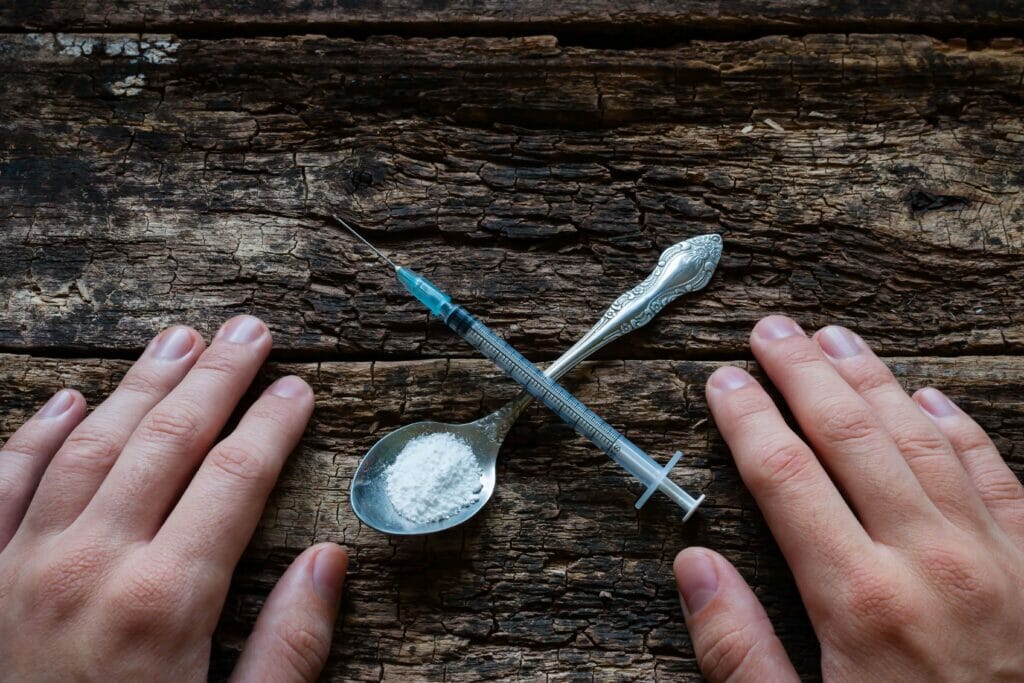Can You Stop Using Heroin on Your Own?

While it’s possible to stop using heroin alone, most experts strongly advise against it. The withdrawal symptoms and cravings associated with heroin can be severe and potentially dangerous. Attempting to quit cold turkey without proper medical supervision can lead to severe health complications or relapse.
This article discusses the challenges of quitting heroin, the importance of seeking professional help, the benefits of medication-assisted treatment, the risks of stopping alone, and the role of professional support in managing heroin addiction.
The Process of Quitting Heroin
Quitting heroin abruptly can trigger intense withdrawal symptoms and carries a high risk for relapse. Professional support and comprehensive treatment approaches are essential to keep the person safe and lower the risk of relapse.
Withdrawal symptoms may be physical and psychological and can vary in intensity, depending on addiction severity. Side effects of withdrawal typically include intense cravings and may be accompanied by the following:
- Physical symptoms, such as nausea, vomiting, diarrhea, muscle aches, sweating, chills, fever, and tremors.
- Psychological symptoms include anxiety, agitation, irritability, insomnia, and depression.
The timeline for heroin withdrawal can vary from person to person but generally begins within 6 to 12 hours after the last dose and peaks around the second or third day. Symptoms often subside within a week, although some psychological and emotional effects may persist.
Below is a typical timeline, with the first 24 hours the most challenging.
- Days 2-4: Symptoms peak.
- Days 5-7: Symptoms begin to subside.
- Days 8-14: Symptoms may linger but usually become less severe.
Managing Withdrawal Symptoms
Medically supervised detox keeps you safe during heroin withdrawal by providing constant medical monitoring and intervention to manage potential complications. Healthcare professionals assess your overall health, monitor vital signs, administer medications to alleviate withdrawal symptoms, address any medical emergencies that may arise, and ensure your physical well-being throughout the detoxification process. This level of supervision helps lower the risks associated with withdrawal and ensures your safety during this critical phase of recovery.
Medication-Assisted Treatment (MAT) is often used to manage withdrawal symptoms and to alleviate anxiety.
The benefits of MAT include:
- Reduces Withdrawal Symptoms – Medications such as methadone, buprenorphine, or naltrexone can help alleviate withdrawal symptoms and cravings.
- Minimizes Relapse Risk – By reducing cravings and blocking the euphoric effects of opioids, MAT can help individuals avoid relapse.
- Improves Treatment Retention – By addressing the physiological aspects of addiction, medications can help individuals stay engaged in treatment longer, increasing the likelihood of successful outcomes.
- Reduces Harmful Behaviors – MAT has been linked to decreased risky behaviors associated with heroin addiction, such as injection drug use and engaging in criminal activities to obtain drugs.
- Allows for Holistic Recovery – MAT is often combined with counseling, therapy, and other support services, creating a comprehensive and holistic approach to recovery.
- Saves Lives – MAT has been shown to reduce the risk of opioid overdose and associated fatalities. Medications like naloxone, often used in MAT, can reverse opioid overdoses, potentially saving lives in emergencies.
It’s important to note that the effectiveness of MAT can vary depending on the individual, and it is best used as part of a comprehensive treatment plan tailored to specific needs and goals.
Committing to a healthy diet, regular exercise, and practicing mind-body techniques such as yoga and meditation can help manage withdrawal symptoms and support long-term recovery.
The Risks of Quitting Heroin Alone
Quitting heroin alone can be dangerous, as severe reactions can arise during detox. Professional oversight is critical to promptly identify and manage any potential medical complications during withdrawal, ensuring the individual’s safety and well-being.
The Mayo Clinic warns to avoid stopping heroin or any opioid cold turkey as symptoms can be severe. By quitting use under a doctor’s supervision, you can gradually reduce (taper) the drug, which minimizes risk and discomfort.
Potential risks of quitting heroin on your own may include:
- Medical complications such as dehydration, electrolyte imbalances, difficulty breathing, and seizures.
- Psychological complications such as depression, anxiety, and suicidal thoughts and behaviors.
- Overdose. Once you quit using heroin, even for a few days, you lose tolerance to your usual dose. If you relapse and resume using the same amount, you can overdose.
Why Seek Professional Help?
Seeking professional help is critical in managing a chronic disease like heroin addiction. Healthcare providers can offer evidence-based treatments, comprehensive care plans, ongoing monitoring, and support, all of which are essential for long-term recovery and reducing the risks associated with the disease.
Reasons why seeking professional help is crucial include the following:
- Safer – Professional treatment offers a safe and supervised environment where you can detox more comfortably and receive medical attention when needed.
- Access to counseling and therapy – Professional counseling and treatment will help you identify and address underlying issues that may have contributed to your addiction and may increase the risk of relapse if unresolved.
- Support from peers – Professional treatment offers the opportunity to connect with others in recovery, providing a supportive community to help you stay on track.
Professional Treatment Options
In addition to medically supervised detox and MAT, professional treatment options for heroin recovery include counseling and therapy, residential or outpatient programs, support groups, and aftercare services, all tailored to address the physical, psychological, and social aspects of addiction and promote lasting recovery.
Inpatient treatment means the person lives at the facility for several weeks or months in a highly structured environment. This option is suitable for those with a severe addiction.
An outpatient setting may be appropriate for those with a less severe addiction. With outpatient treatment, the person attends a treatment program but lives at home, allowing them to continue working or attending school if desired.
Behavioral Therapy
Behavioral therapy is an effective and proven approach to heroin recovery. Therapeutic approaches like cognitive-behavioral therapy (CBT) and dialectical behavior therapy (DBT) help individuals identify and change destructive thought patterns and behaviors, develop coping skills, address underlying issues contributing to addiction, and create a foundation for long-term sobriety through evidence-based techniques and ongoing support.
Professional help can make all the difference in successfully stopping heroin use by providing medical supervision, managing withdrawal symptoms, offering personalized treatment plans, addressing underlying issues, and providing ongoing support, significantly increasing the likelihood of a successful recovery.
Contact Midwest Recovery Centers today to learn about our specialized Heroin Addiction Treatment program and how we can help you or a loved one recover.
Reviewed and Assessed by
Taylor Brown, B.A.Com., CADC
Tim Coleman, M. of Ed.



